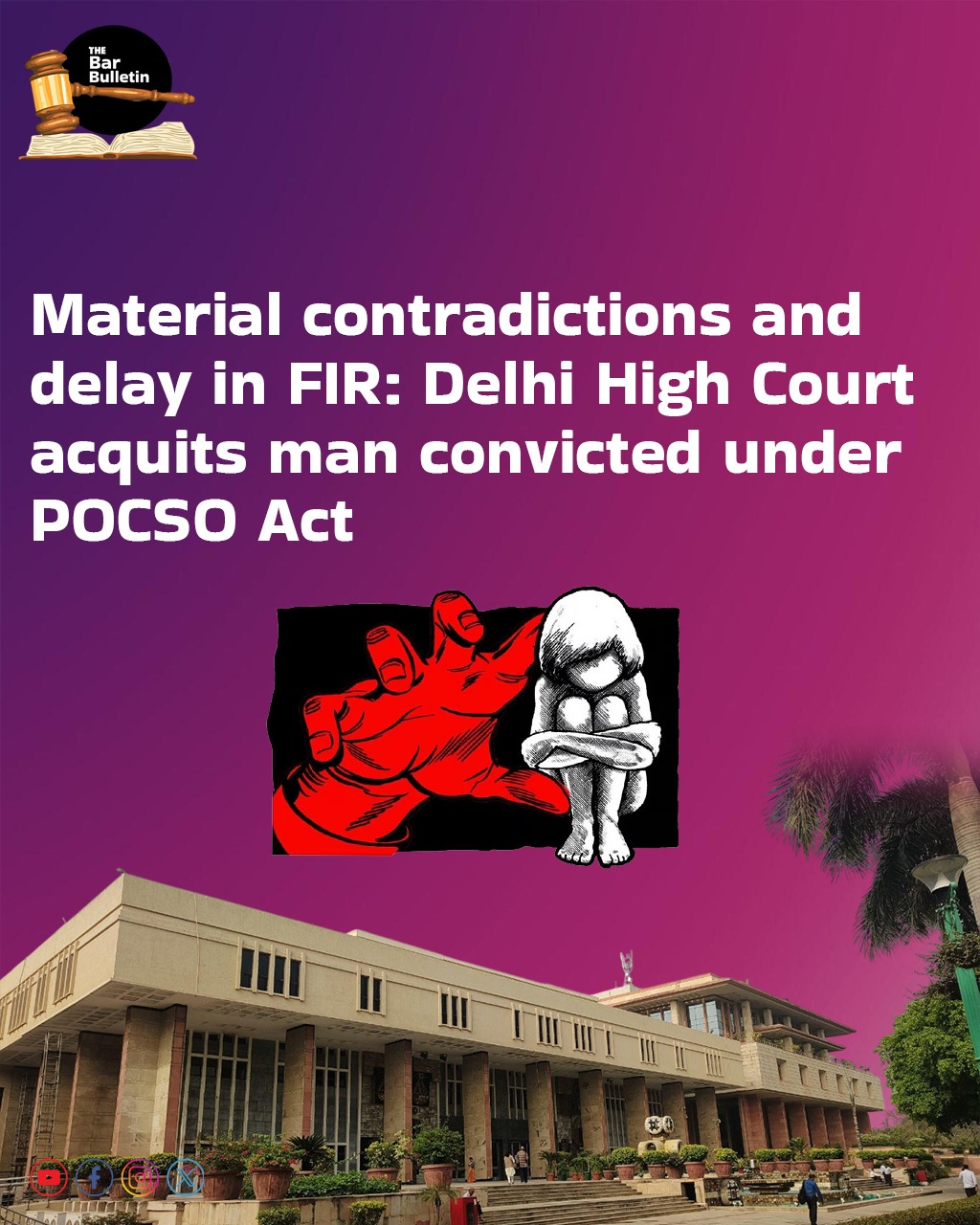The Delhi High Court has acquitted a man previously convicted under the Protection of Children from Sexual Offences (POCSO) Act, setting aside the trial court’s judgment due to unexplained delay in FIR registration, material contradictions in testimonies, and absence of corroborative evidence.
The appellant had been convicted by the Additional Sessions Judge under Sections 6 and 12 of the POCSO Act, along with Sections 354D, 376(2)(n), and 506 of the Indian Penal Code (IPC). He was sentenced to 10 years’ rigorous imprisonment under Section 6 of POCSO, 3 years under Section 12, and 6 months under Section 506 IPC, with all sentences to run concurrently.
Before the High Court, the appellant asserted that he was falsely implicated and that the trial court had failed to properly appreciate critical omissions and inconsistencies in the prosecution’s case. He highlighted the eight-month delay in lodging the FIR and discrepancies in the accounts given by the victim and her mother regarding the date, place, and timing of the alleged incident. He further argued that the prosecution failed to produce any FSL report, call detail records (CDRs), or independent corroboration of the allegations. The defence also pointed to a history of enmity between the appellant and the family of the complainant.
According to the prosecution, the victim alleged that she had been stalked for two years and was sexually assaulted by the appellant in his car, with the act being repeated days later. However, the High Court found the prosecution case riddled with inconsistencies. Notably, the victim’s initial complaint and statement under Section 161 CrPC lacked any reference to a specific date or time, with the first mention of March 2018 appearing only in her later Section 164 CrPC statement.
Further contradictions emerged during trial: while the victim testified that she disclosed the incident to her mother in November 2018, the mother stated she was informed in March 2018, immediately after the incident. The Court found these inconsistencies significant, particularly given the delay in filing the FIR on November 17, 2018.
Justice Manoj Kumar Ohri observed that while the victim was legally competent to testify, the delay in lodging the FIR, combined with serious omissions and contradictions in the key witness statements, cast a reasonable doubt on the reliability of the prosecution’s version. The Court emphasized that in a case of this nature, where corroborative evidence is lacking, the prosecutrix’s testimony must be of unimpeachable quality, which was not found to be the case here.
Accordingly, the Court held that the material contradictions, delay, and lack of supporting evidence had severely affected the credibility of the prosecution’s story. The conviction was therefore set aside, and the appellant was acquitted of all charges.
Appearances:
For the Appellant: Mr. Amit Chadha, Senior Advocate with Mr. Pranav Gupta, Mr. Mohd. Arif, Mr. Saarthak Sethi, and Mr. Harjas Singh
For the State: Ms. Shubhi Gupta, APP with WSI Reena, PS Dwarka North
For the Victim (through DHCLSC): Ms. Sunita Arora, Advocate, with the victim’s mother



